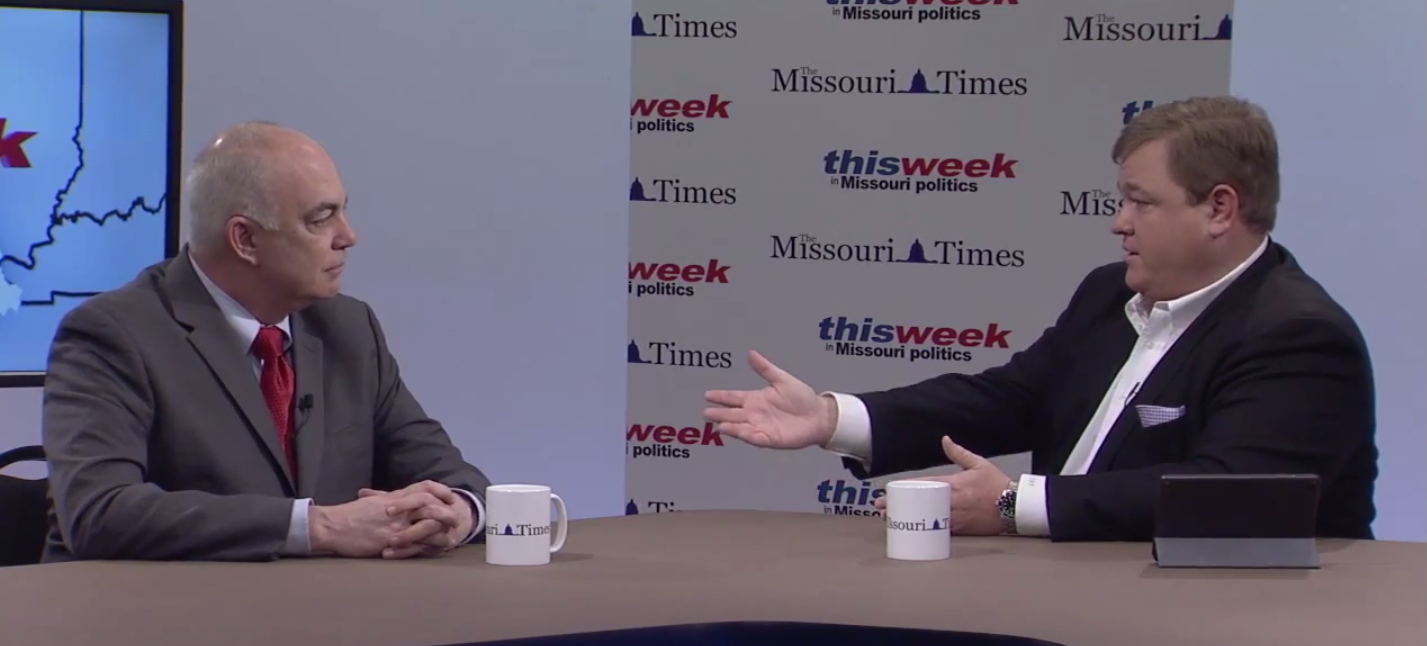Saint Louis, Mo. — Missouri Republican Party Chairman John Hancock joined this Week In Missouri Politics to discuss the unfolding controversy surrounding the suicide of State Auditor Tom Schweich.
Hancock has been accused of engaging in an anti-Semitic “whisper campaign” against Schweich, who is Episcopalian, but whose father and grandfather were Jewish.
Hancock has vehemently denied the rumors and, in the last few days, has gone on the offensive in challenging his accusers to present any evidence of his guilt.
“It was not true then, it’s not true now, and there’s never been any evidence because I didn’t do it,” Hancock said. “The tragedy that happened is that a man killed himself. He’s left a wife and two children. My heart aches for that family. It is wrong to inject politics into a tragedy like this.”
The guest panel discussed Hancock’s statement and spent much of the program discussing the unfolding events in Ferguson after last week’s blistering DOJ report on the Ferguson Police Department and the subsequent shooting of two St. Louis police officers.
Republican Rep. Justin Hill and former Republican state Sen. Jason Crowell both said they believed Hancock’s denial, and said that he would likely weather the storm and stay on as MRP chairman despite some calls for his resignation. On the left, Anne Schweitzer of Public Eye STL and AFSCME’s Jeff Mazur both said they doubted Hancock was anti-Semitic, but remained unconvinced he’d never made any inappropriate remarks.
“Do I think John Hancock is an anti-Semite? No, not at all,” Mazur said. “Do I think John Hancock is the sort of a person who might mention drop a hint to someone he suspects is an anti-Semite because he thinks it might give him an edge or an advantage? I think that’s a much harder question.”
Stream the full episode at twmp.tv.
Some highlights from the panel’s thoughts on Ferguson:
–“I do agree with reforming our municipalities,” Crowell said. “A lot of this treatment, if you will, is because the police force has been used as tax collectors. I think that mindset has to change. That’s what I like seeing policy makers address, because that’s not just a Ferguson issue. We have that problem outstate.”
–“We had a breakdown in community oriented policing,” said Hill, a former police officer. “There’s really not much the state can do. Maybe the media can step in and let that community heal.”
–“I think that we ought to be cautious as 5 white Missourians sitting around this table and holding court on how things need to happen in Ferguson,” Mazur said. “There’s a lot to suggest that that’s part of the reason we got into the situation we’re in in Ferguson in the first place.”
–“What can we do right now, today, to make the situation better for everyone, not protesors or cops but everyone,” Schweitzer said. “And the second change is long term, and we see that happening now, there’s municipal court changes. A lot of people are trying to do the right thing.”
Collin Reischman was the Managing Editor for The Missouri Times, and a graduate of Webster University with a Bachelor of Arts in Journalism.




